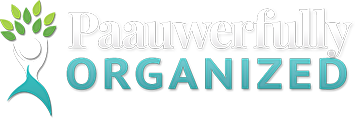Adapted from Stephen Covey’s books, 7 Habits of Highly Effective People and First Things First.
1. Review your mission/purpose.
Although most businesses have a mission statement, the majority of individuals do not. If you’d like a tool to help you begin drafting your own personal mission statement, visit FranklinCovey’s free Mission Statement Builder. Your mission statement represents your values, vision, and purpose for your life.
- Values – Be clear about what’s most important to you — what you value — from the deepest place in your heart. Ask yourself, “Is my value what I really want, or is it what others think I “should” do?”
- Vision – who you are being. We are human beings, not human doings!
- Purpose – what you want to do as a result of who you are being…your life purpose. This is your road map to direct where you want your life to go.
- Mission – Your mission statement represents your values, vision, and purpose for your life.
2. Define your key roles
Start with self, and then identify a maximum of seven roles of greatest importance to you. I’ve shared my own personal roles below as an example, including sub-roles for my “business owner” role.
[two_column_block style=”undefined”] [content1]Example:Self: physical, mental, spiritual, social
Role #1: Wife
Role #2: Mother
Role #3: Family Member: sister, niece, aunt…
Role #4: Business Owner (see sub-roles)
Role #5: Friend
Role #6: Community Volunteer
Role #7: Singer [/content1] [content2]2
Business Owner
Productivity Consultant
Certified Coach
Writer
Speaker/Trainer
Relationship Builder
Manager/Administrator
Lifelong Learner
3. Identify weekly goals/choices — in writing
Think of two or three important results you want to accomplish during the coming week in each role you identified in step two. Write this week’s goals/choices next to each role. If you choose not to do anything with a particular role, that’s fine. There’s a difference between choosing NOT to do something and not “getting around to it.”
Goals can be focus areas (example: focus on using reflective listening skills with my daughter) or scheduled activities (example: work out at the gym three times for one hour each). Remind yourself of this truth: Every time I say “yes” to someone or something, I am saying “no” to someone or something else! I like thinking of weekly choices because sometimes goals can start feeling like a “should” or “have to” vs. a “choose to” and that can create some resistance.
| Values + Roles = Goals/Choices |
Your goals reflect the following elements:
- They are driven by conscience and align with your personal vision and mission/purpose.
- Your focus is on the “important” rather than just the “urgent”
- They are driven by “I choose to…” rather than “I have to…” or “I should…”
- These four basic human needs:
-
- Physical (doing)
-
- Mental (learning)
- Spiritual (understanding/being)
-
- Social (relating)
-
Paauwer Question: What is the most important thing I can do in this role this week that will have the greatest positive impact?
4. Organize your time weekly
Schedule a weekly one-hour appointment with yourself and follow this Six Step Planning Process as you plan each week. Look at the week ahead with your goals in mind and schedule time to take the action required to achieve them.
SUCCESS TIPS:
- Include some unscheduled time. If every minute of every day is already booked, you are setting yourself up for failure. Allow time for unexpected but important activities when planning your week.
- While you’re planning, have a stack of 3×5 index cards handy to help you manage distractions. As things pop into your mind that will “just take a second” to do, write them down (one per card) and finish your planning for the coming week. At the end of your planning session, you can either do those things you wrote down, or place in a tickler file for future follow-up.
- Use a weekly planner rather than a daily or monthly planner. If you use a hand-held organizer, do your planning at a computer screen where you can see the whole week at once.
5. Exercise integrity in the moment of choice
When making schedule adjustments, connect with your mission to stay on track. If something more important comes up, reschedule the planned activity for another time. Decisions are based on your priorities. Be a gatekeeper – say no to activities or responsibilities which will derail you from living your mission. Don’t play the victim; it’s your life and you are in control!
| “I choose to…” vs. “I have to…” |
6. Evaluate and learn
“If you keep doing what you’re doing, you’ll keep getting what you’re getting! One definition of insanity is to keep doing the same things and expecting different results.” (Stephen Covey)
Before planning the next week, evaluate the previous week by asking yourself these questions:
- What worked and what didn’t work?
- What got in the way of me accomplishing what I wanted this past week?
- What did I learn from that?
- Based on my learning, what do I choose to do differently in the coming week.
Click here to download a printable copy of this planning process.
For a more in-depth look at the weekly planning process
register for my free webinar, Managing Priorities.

Life Architect – Creating Blueprints for Purposeful & Productive Lives
Kathy@OrgCoach.net www.OrgCoach.net Follow me on Facebook






I enjoyed your site and article (April 3, 2018). You have me thinking 🙂
Nan, I encourage you to ask for what you want and take action to move you from where you are to where you want to be!
This site is absolutely fabulous!
I like your website. I have read the Steven Covey book The 7 Habits. It is in my head, my brain, my subconscious; every thing is theoretic and I want to start most of all to write my mission statement.
Thank you so much for posting this. I think this really puts things into a different light. I have read about this stuff before but the way you write just makes it clearer.